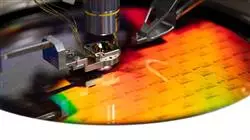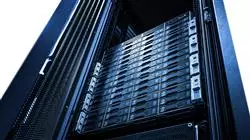University certificate
The world's largest faculty of information technology”
Introduction to the Program
Those who acquire knowledge now in quantum technologies will be the leaders in programming in the near-term future"

Quantum Computing has advanced rapidly in both theory and practice in recent years and with it the hope of potential impact on real applications. Quantum Computing are able to naturally solve certain problems with complex correlations between inputs that can be incredibly difficult for traditional computers. This Postgraduate certificate Analyzes in which situations a quantum advantage could be achieved ”, in the context of advanced analytics and artificial intelligence in the industrial field."
Learning models developed on quantum computers are much more powerful for applications in the search for an optimal solution, both at the level of the best selection of hyperparameters in machine learning algorithms, as well as in cases of scenario optimization. This is because they allow much faster computation, better generalization with less data, or both. Those the computer scientists who acquire knowledge now in quantum technologies will be the leaders in programming in the near-term future."
Additionally, the student has the best study methodology 100% online, which eliminates the need to attend classes in person or have to comply with a predetermined schedule. To this end, in only 6 weeks will delve into the scope of application of Quantum Computing, understanding the competitive advantages they provide, so they will be positioned at the technological forefront and will be able to lead ambitious projects in the present and in the future.
A historic technological revolution associated with the development of new quantum platforms is underway"
This Postgraduate certificate in Quantum Computing contains the most complete and up-to-date program on the market. The most important features include:
- The development of case studies presented by experts in Computing quantum
- The graphic, schematic, and practical contents with which they are created, provide practical information on the disciplines that are essential for professional practice
- Practical exercises where self-assessment can be used to improve learning
- Its special emphasis on innovative methodologies
- Theoretical lessons, questions to the expert, debate forums on controversial topics, and individual reflection assignments
- Content that is accessible from any fixed or portable device with an Internet connection
Quantum sensors and actuators will enable computer scientists to navigate the nanoscale world with remarkable precision and sensitivity"
The program’s teaching staff includes professionals from the sector who contribute their work experience to this educational program, as well as renowned specialists from leading societies and prestigious universities.
Its multimedia content, developed with the latest educational technology, will allow professionals to learn in a contextual and situated learning environment, i.e., a simulated environment that will provide immersive education programmed to prepare in real situations.
The design of this program focuses on Problem-Based Learning, by means of which professionals must try to solve the different professional practice situations that arise during the academic course. For this purpose, the student will be assisted by an innovative interactive video system created by renowned and experienced experts.
The quantum revolution is already underway, and the possibilities ahead of you are limitless"

Determine the main quantum operators and develop operational circuits"
Why study at TECH?
TECH is the world’s largest online university. With an impressive catalog of more than 14,000 university programs available in 11 languages, it is positioned as a leader in employability, with a 99% job placement rate. In addition, it relies on an enormous faculty of more than 6,000 professors of the highest international renown.

Study at the world's largest online university and guarantee your professional success. The future starts at TECH”
The world’s best online university according to FORBES
The prestigious Forbes magazine, specialized in business and finance, has highlighted TECH as “the world's best online university” This is what they have recently stated in an article in their digital edition in which they echo the success story of this institution, “thanks to the academic offer it provides, the selection of its teaching staff, and an innovative learning method aimed at educating the professionals of the future”
A revolutionary study method, a cutting-edge faculty and a practical focus: the key to TECH's success.
The most complete study plans on the university scene
TECH offers the most complete study plans on the university scene, with syllabuses that cover fundamental concepts and, at the same time, the main scientific advances in their specific scientific areas. In addition, these programs are continuously being updated to guarantee students the academic vanguard and the most in-demand professional skills. In this way, the university's qualifications provide its graduates with a significant advantage to propel their careers to success.
TECH offers the most comprehensive and intensive study plans on the current university scene.
A world-class teaching staff
TECH's teaching staff is made up of more than 6,000 professors with the highest international recognition. Professors, researchers and top executives of multinational companies, including Isaiah Covington, performance coach of the Boston Celtics; Magda Romanska, principal investigator at Harvard MetaLAB; Ignacio Wistumba, chairman of the department of translational molecular pathology at MD Anderson Cancer Center; and D.W. Pine, creative director of TIME magazine, among others.
Internationally renowned experts, specialized in different branches of Health, Technology, Communication and Business, form part of the TECH faculty.
A unique learning method
TECH is the first university to use Relearning in all its programs. It is the best online learning methodology, accredited with international teaching quality certifications, provided by prestigious educational agencies. In addition, this disruptive educational model is complemented with the “Case Method”, thereby setting up a unique online teaching strategy. Innovative teaching resources are also implemented, including detailed videos, infographics and interactive summaries.
TECH combines Relearning and the Case Method in all its university programs to guarantee excellent theoretical and practical learning, studying whenever and wherever you want.
The world's largest online university
TECH is the world’s largest online university. We are the largest educational institution, with the best and widest online educational catalog, one hundred percent online and covering the vast majority of areas of knowledge. We offer a large selection of our own degrees and accredited online undergraduate and postgraduate degrees. In total, more than 14,000 university degrees, in eleven different languages, make us the largest educational largest in the world.
TECH has the world's most extensive catalog of academic and official programs, available in more than 11 languages.
Google Premier Partner
The American technology giant has awarded TECH the Google Google Premier Partner badge. This award, which is only available to 3% of the world's companies, highlights the efficient, flexible and tailored experience that this university provides to students. The recognition as a Google Premier Partner not only accredits the maximum rigor, performance and investment in TECH's digital infrastructures, but also places this university as one of the world's leading technology companies.
Google has positioned TECH in the top 3% of the world's most important technology companies by awarding it its Google Premier Partner badge.
The official online university of the NBA
TECH is the official online university of the NBA. Thanks to our agreement with the biggest league in basketball, we offer our students exclusive university programs, as well as a wide variety of educational resources focused on the business of the league and other areas of the sports industry. Each program is made up of a uniquely designed syllabus and features exceptional guest hosts: professionals with a distinguished sports background who will offer their expertise on the most relevant topics.
TECH has been selected by the NBA, the world's top basketball league, as its official online university.
The top-rated university by its students
Students have positioned TECH as the world's top-rated university on the main review websites, with a highest rating of 4.9 out of 5, obtained from more than 1,000 reviews. These results consolidate TECH as the benchmark university institution at an international level, reflecting the excellence and positive impact of its educational model.” reflecting the excellence and positive impact of its educational model.”
TECH is the world’s top-rated university by its students.
Leaders in employability
TECH has managed to become the leading university in employability. 99% of its students obtain jobs in the academic field they have studied, within one year of completing any of the university's programs. A similar number achieve immediate career enhancement. All this thanks to a study methodology that bases its effectiveness on the acquisition of practical skills, which are absolutely necessary for professional development.
99% of TECH graduates find a job within a year of completing their studies.
Postgraduate Certificate in Quantum Computing
Currently, Quantum Computing is emerging as one of the most promising and disruptive technologies of the future, which makes it important for those interested in this field to study TECH's Postgraduate Certificate in Quantum Computing. This program provides students with fundamental skills and competencies to analyze the need for Quantum Computing and to specify the different types of quantum computers currently available, as well as to examine Quantum Computing applications, advantages and disadvantages. Students will also acquire knowledge about the basic fundamentals of quantum algorithms and their internal mathematics, 2n-dimensional Hilbert space, n-Qubits states, quantum gates and their reversibility, and Quantum Teleportation. In addition, the program focuses on quantum algorithms relevant to machine learning and data processing, such as Quantum Computing paradigms and the various ML and DL algorithms available in Quantum Computing. Students will also learn about the use of the Quantum Fourier Transform in the integration of indicators for quantum ML models and feature selection, and the application of pure quantum algorithms in solving optimization problems.
Study at your own pace and with the quality you desire
The 100% online methodology of TECH's Postgraduate Certificate in Quantum Computing is a great advantage for students, as it allows them to access content and resources from anywhere and at any time. This translates into greater flexibility in their training, allowing them to combine their studies with other work or personal responsibilities. On the other hand, the quality of the content of the program is exceptional, since it is designed and directed by expert teachers in the field, who have a wide professional experience in the field of Quantum Computing. Therefore, TECH's Postgraduate Certificate in Quantum Computing is a unique opportunity for those interested in Quantum Computing to acquire specialized and up-to-date skills and competencies in this emerging technology.







